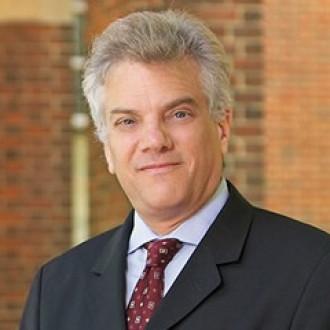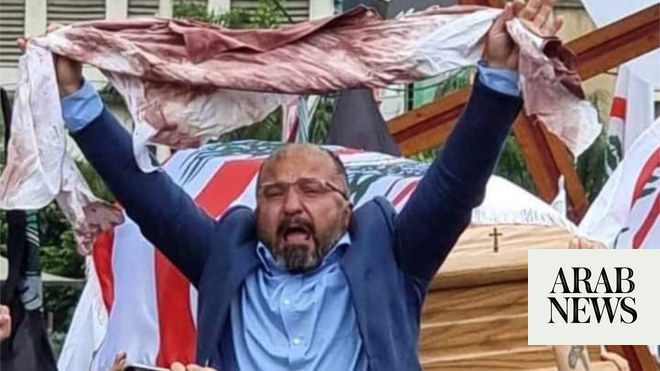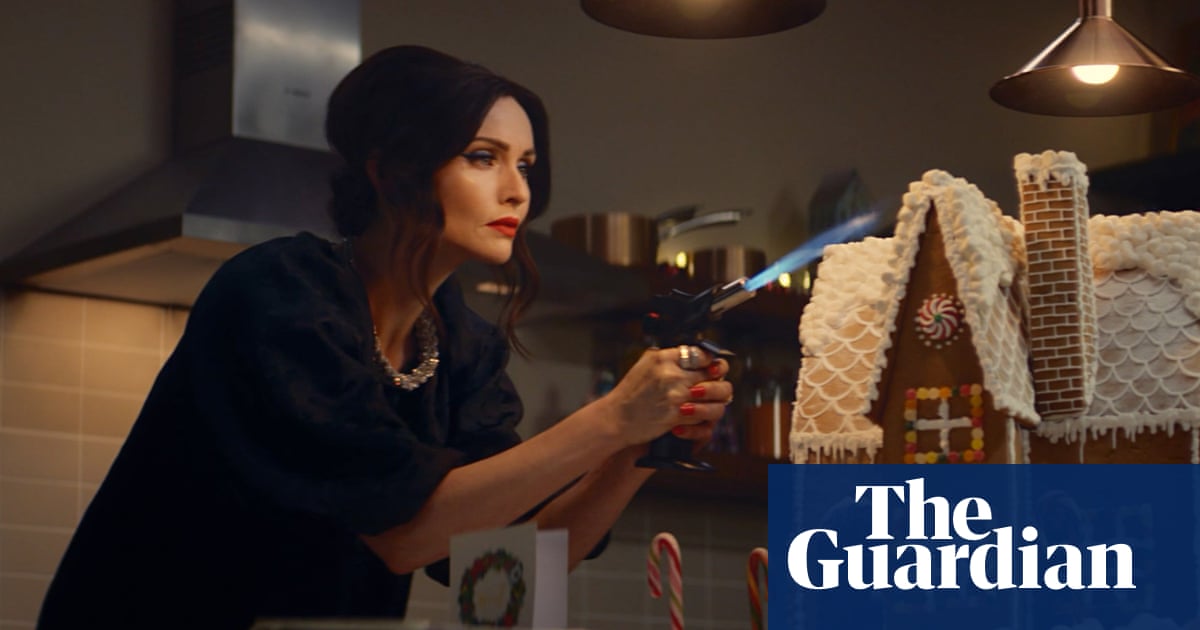
Banaz Mahmod ... ‘She was the nicest person you could ever meet.’ Photograph: Photonews Service/Rex/Shutterstock
As a television drama of the real-life investigation into the murder of a young woman by her family airs this month, her sister told the Guardian little had changed since Banaz Mahmod was killed in 2006.
“Lessons have not been learned. Banaz is not the first ‘honour’ killing and she won’t be the last,” says Payzee Mahmod, a British Kurd, who was a teenager when her sister disappeared from her south London home. Banaz had gone to the police five times for help.
Mahmod Mahmod
Mahmod Mahmod attending his trial at the Old Bailey in London in 2007. He was later sentenced to life in prison. Photograph: Rex/Shutterstock
Payzee and her sister were pushed into arranged marriages at the ages of 16 and 17, respectively. Payzee now works as a campaigner against child marriage, while a third sister, Bekhal, remains in hiding after giving evidence against her father at the trial.
“My biggest hope is that this film will start the right conversation. You think about different groups of people watching it. You hope they don’t think: ‘Oh she went to police five times, I’m not going.’ You hope the right people will think: ‘If ever I’m presented with a case like that, I’ll act quickly.’ You hope young people who have a belief in the ‘honour’ code might think about how toxic those beliefs can be.”
Honour, the two-part ITV series stars Keeley Hawes as DCI Caroline Goode, the detective who was appalled that her colleagues had missed multiple chances to save Banaz’s life and worked to bring the five men convicted of the killing to justice. Banaz, 20, was raped and murdered after leaving an allegedly abusive marriage and falling in love with another man. In the eyes of her family, her actions brought shame on them, so her father and uncle and other relatives plotted to murder her to restore their “honour”.
Guardian Today: the headlines, the analysis, the debate - sent direct to you
Read more
Payzee, initially sceptical of the show because of its focus on Goode rather than her sister, now welcomes it after watching it last week. She says it shows both the “ugly” side of the police in the disbelief Banaz faced from officers when she revealed her father had tried to kill her, as well as Goode’s “amazing” investigation.
“It’s a surreal feeling to watch your family. It was very emotional, like reliving the trauma. It’s so very tragic for me what happened to Banaz. The amount of failures; it’s devastating to hear.”
Of the particularly tragic aspects of the case, one that stands out is that the evidence that eventually led to the prosecution of the men involved came from Banaz herself.
“What she handed to the police when she was alive really became its foundation. She gave a list of the names of the five men she said were following her, abusing her, stalking her.”
The cast of Honour: Keeley Hawes as Caroline Goode, Buket Komur as Banaz Mahmod, Rhianne Barreto as Bekhal Mahmod and Moe Bar-El as Rahmat Sulemani.
The cast of Honour: Keeley Hawes as Caroline Goode, Buket Komur as Banaz Mahmod, Rhianne Barreto as Bekhal Mahmod and Moe Bar-El as Rahmat Sulemani. Photograph: ITV/PA
But she was not given protection. One officer dismissed her as manipulative and melodramatic.
“It has been one of the most painful facts to live with. To think she wrote these names down and took them to the police. She screamed from the top of her lungs, but she was not heard, not seen. This was very hard to watch.”
It wasn’t until Banaz’s boyfriend, Rahmat Sulemani, reported her missing that police began to investigate. Sulemani took his own life in 2016.
DCI Goode, without evidence or a body, used techniques more commonly found in organised crime cases, such as recording calls made by the suspects, two of whom had fled to Iraq. Goode eventually tracked down the body of the 20-year-old, which had been put in a suitcase and buried in the garden of a derelict house in Birmingham.
In 2012, Goode took part in the award-winning documentary Banaz: A Love Story by film-maker Deeyah Khan. She said at the time: “It was an absolute outrage that this girl was missing and nobody cared.”
"They"re following me": chilling words of girl who was "honour killing" victim
Read more
Payzee says Goode’s determination was inspirational. “She said we won’t stop until we do what is right for Banaz. There were a lot of setbacks in the case. But she continued working and wading through.”
The telling of Banaz’s story has come at a sadly fitting time, too. Fourteen years after Banaz was killed, the Covid crisis has prompted a “shadow pandemic” of domestic violence against women making the need to tell the storygreater than ever, says Payzee.
“It articulates the need for this conversation, about ‘honour’-based crimes very well. It was emphasised that this issue does happen right there in the UK.”
Deeyah Khan and Caroline Goode
The film-maker Deeyah Khan with Caroline Goode at the BBC while working on a documentary about Banaz Mahmod’s murder. Photograph: Courtesy of Deeyah Khan
An estimated 5,000 “honour killings” happen every year worldwide, according to the UN, with an estimated 12-15 in Britain.
Banaz’s death and subsequence criticism of the justice system sparked changes, including the introduction of special prosecutors to deal with honour crimes and a system of risk assessments for domestic abuse, stalking and honour-based violence (Dash) to improve police response.
However, a 2015 report by the police watchdog, HMIP, on “honour”-based violence, forced marriage and female genital mutilation, found only three out of 43 police forces in England and Wales were adequately prepared to respond to the needs of victims and take cases through to prosecution.
A recent analysis of CPS data by the victim support charity Karma Nirvana shows a 50% drop in prosecutions of cases flagged as “honour”-based abuse (HBA) from 200 in 2012-13 to 100 in 2018-19. Prosecutions have also dropped from 206 to 127 in the same time period.
Victim support groups, including the Iraqi and Kurdish Women’s Rights Organisation (IKWRO) which ran a Justice for Banaz campaign after her disappearance, say that, despite positive changes, there is no systematic understanding of such crimes across forces, social services and schools.
In Banaz’s case, Goode found 50 men linked to the murder, from pledging allegiance to the suspects or giving false alibis.
Payzee Mahmod in 2015.
Payzee Mahmod in 2015. Photograph: Wayne Tippetts/Rex/Shutterstock
“I agree with those who say not enough has changed,” says Payzee. Last year, as she prepared to give a Ted talk against child marriage, she approached the police for protection as she was afraid of repercussions from her Iraqi Kurdish community. After explaining what happened to her sister and giving details of “honour”-based abuse, she was told: “Look, it’s probably not what you want to hear, but there’s not much we can do. If anyone threatens you, call 999.”
“I’m lucky I was in touch with the police, because of my case. I had to move out of the community.
“How many girls would be able to get a follow-up with police? Other girls show up and don’t get help and we know what happens to them. I felt like I was walking in my sister’s shoes. I do think it could happen again.”
“Social services were in me and my sisters’ lives 20 years ago. This should be part of our school education.”
Payzee, who initially worked in the fashion industry, switched to working for IKRWO this year.
“I love fashion it’s a big part of my identity. But I feel this is my calling, it’s my purpose. If I am silent on this issue, I’m failing my sister, I’m failing so many other women.
“She was the nicest person you could ever meet. She was so caring and giving. She always put others first and no matter what went wrong in our family she was willing to see the good in anyone.”
The National Police Chiefs’ Council (NPCC) lead for “honour”-based violence, Commander Ivan Balhatchet, said the NPCC supports charity’s calls for a fresh inspection by the police watchdog, now called Her Majesty’s Inspectorate of Constabulary and Fire and Rescue Services (HMICFRS), as well as for national guidance and police training toolkits to identify and prosecute perpetrators of “honour”-based abuse.
“Ensuring that there’s a risk assessment tool in place, and staff and officers are trained and aware of the signs of honour-based abuse is vital in identifying and tackling it effectively,” he said. “This remains a priority and we’ll continue to work closely with partners, stakeholders and third sector organisations to improve the policing response.”
He urged those with concerns about honour-based violence to contact the police and said: “You will be taken seriously and the police will do everything in our power to protect you from harm.”
• Honour will be shown on ITV on 28 and 29 September.
• If you are in the UK and are at risk or are concerned for someone that is, you can contact Karma Nirvana confidentially on 0800 5999 247 or go to its website.












